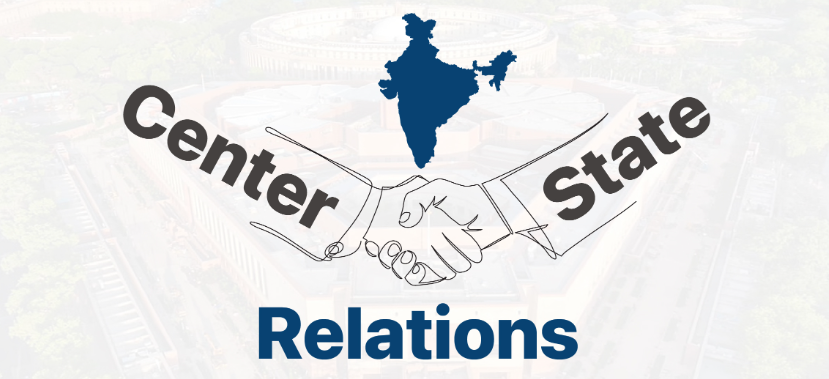A New Federal Bargain: Navigating Coalition Politics and Centre-State Relations in India (GS Paper 2, Polity)

Introduction:
- The resurgence of coalition politics in India brings to the forefront crucial questions regarding federalism and the dynamics between the Centre and the states.
- With the BJP's increased reliance on regional allies and its expanding footprint in southern India, there exists a potential for a reset in federal relations.
- However, the path to such a transformation remains uncertain.
The Evolution of Centre-State Relations under the BJP:
Modi 1.0:
- The BJP government initiated significant changes, including the dissolution of the Planning Commission and the establishment of Niti Aayog to promote cooperative federalism.
- The introduction of the Goods and Services Tax (GST) marked a milestone in fiscal federalism, streamlining tax structures across states.
Modi 2.0:
- The second term witnessed the abrogation of Article 370, signaling a shift towards centralization and a preference for a unified national agenda.
- Proposals such as "One nation, one election" underscored this trend, potentially marginalizing state interests.
The Federalism Battle in the 2024 General Election:
- Tensions over federalism intensified, particularly regarding the pending delimitation exercise. Southern states feared a skewed redistribution of parliamentary seats favoring populous northern states, threatening the balance of fiscal federalism.
- The legitimacy of redistributive fiscal policies came under scrutiny, with the potential for partisan conflicts jeopardizing the fiscal pact.
The Return to Coalition Government:
Introduction of Multiple Centers of Power:
- Coalition governance disperses decision-making authority, countering excessive centralization.
- However, it may not necessarily bolster federalism, as regional parties primarily prioritize state-specific concerns.
Regional Parties' Interests:
- Regional parties advocate for state-centric issues and vie for ministerial positions, with limited focus on broader federalism.
- There's a risk that special-interest politics could undermine the broader federal compact.
Threats to Federal Bargain:
- Special-interest regional agendas may politicize resource allocation, eroding trust in federalism.
- There's a potential for coalition partners to align with the BJP's centralizing vision, posing challenges to the federal framework.
Potential for Renewed Federalism:
- The current political landscape offers an opportunity to reexamine federal relations, especially with the changing electoral map.
- A pan-India federal bargain is imperative to rebuild trust between the Centre and states, fostering cooperation and mutual understanding.
Prime Minister Modi's Role:
- Modi's emphasis on cooperative federalism underscores the importance of collaborative governance.
- Empowering institutions like the Inter-State Council and fostering consensus on contentious issues like delimitation are crucial steps towards strengthening federalism.
Conclusion:
- The resurgence of coalition politics presents a pivotal moment for reimagining federalism in India.
- By leveraging this opportunity to foster trust and collaboration between the Centre and states, India can chart a path towards inclusive and sustainable governance.
- As the nation looks ahead, embracing a new vision for federalism holds the key to navigating the complexities of a diverse and dynamic democracy.


